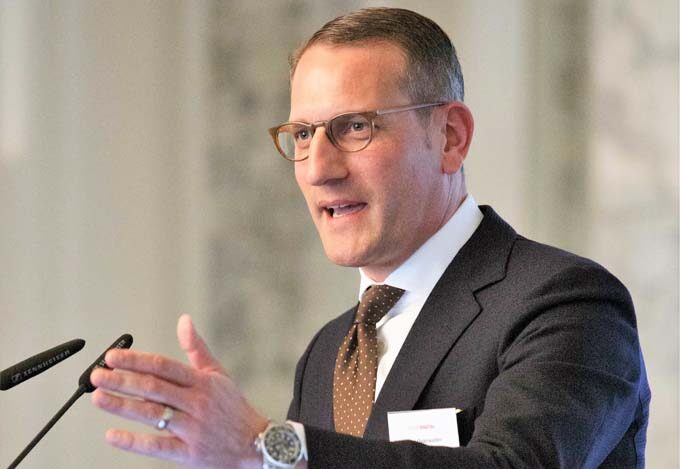Permanent crises put Swiss companies to the test
After a brief post-corona breather, key risk indicators are pointing to the next (permanent) crisis. Although the number of crisis-resistant companies in Switzerland is disproportionately high compared to Germany and Austria, the effects of the crises are gradually making themselves felt here too. The fact that Swiss companies are still doing comparatively well is due not only to successful risk management, but also to Swiss economic policy. This is shown in a study by the Lucerne University of Applied Sciences and Arts and Kiel University of Applied Sciences.

Climate change, Covid-19, war in Europe and the Middle East, political instability, the energy crisis, inflation and a weakening economy - one crisis has followed another in recent years. The ongoing series of challenges has left a clear mark on the financial performance of numerous companies. Even though many companies have done their resilience homework since the pandemic, the number of crisis-prone companies in Germany, Austria and Switzerland rose again in 2023/2024. This negative development can be attributed to the ongoing geopolitical tensions triggered by the Russian war in Ukraine and the significant rise in inflation, energy and food prices. This is shown by an international study by the Lucerne University of Applied Sciences and Arts (HSLU) and Kiel University of Applied Sciences. However, there are clear differences between the countries.
Various factors promote crisis resilience in Switzerland
As the study shows, Swiss companies are disproportionately represented in the group of crisis-resilient companies - almost twice as often as German companies. Resilient companies are characterized by a high equity ratio, higher liquidity, more stable real sales growth and more flexible cost structures. These factors help to smooth out sales fluctuations better and keep the return on sales high.
In addition, Swiss companies tend to diversify their business models and sources of income well, making them less susceptible to external shocks. Effective risk management and good relationships with partners and stakeholders also strengthen the resilience of Swiss companies. Long-term oriented management as well as anti-cyclical buffer and reserve building also contribute to Swiss resilience.
According to study author Prof. Dr. Stefan Hunziker, flatter hierarchies and the corporate culture of Swiss companies also promote an open culture of discussion, the degree of digitalization and the use of flexible working time models - all factors that make companies more resilient in crises, explains the HSLU professor.
Successful Swiss economic policy
However, resilience is not only increased by corporate culture and successful risk management, but is also influenced by external factors. According to the authors of the study, there are also clear differences between the three countries. German companies, for example, received more state aid than their Swiss counterparts. As other studies have shown, this reduces the incentive to reduce costs or make their own efficiency efforts to promote resilience.
The Swiss National Bank (SNB) also contributed to the resilience of Swiss companies. It is comparatively flexible and can tailor its policy more closely to the needs of the domestic market, whereas the European Central Bank has to focus on the eurozone as a whole. "The cross-country comparison illustrates the differences between the markets in terms of the response to the pandemic, the war in Ukraine or the subsequent energy crisis," says Hunziker. "In addition to structural differences between the DACH countries, the SNB's flexibility enabled lower inflation rates and weaker interest rate hikes," explains the economics professor.
Despite good resilience: Swiss companies are also increasingly suffering
Although Austrian companies, particularly in the tourism and energy sectors, showed resilience, they were confronted with high inflation and construction costs. German companies were hit hardest by energy prices and supply chain disruptions, particularly in the industrial and materials sectors. In addition, Swiss companies are generally less energy-intensive than their German and Austrian counterparts, as Switzerland is less reliant on energy-intensive industries. German industry, for example, requires around two and a half times as much energy for every dollar of value added as Swiss industry.
However, a negative trend in financial resilience has also been emerging in Switzerland since 2023, as the HSLU study clearly shows. "Although Swiss companies are doing very well in a European comparison, market risks and higher interest rates are having an increasingly negative impact.
Source: www.hslu.ch
This article originally appeared on m-q.ch - https://www.m-q.ch/de/dauerkrisen-stellen-schweizer-unternehmen-auf-harte-probe/


















